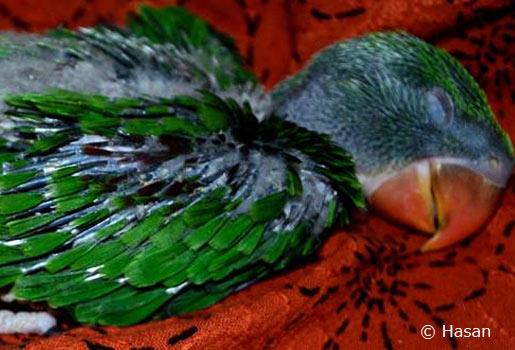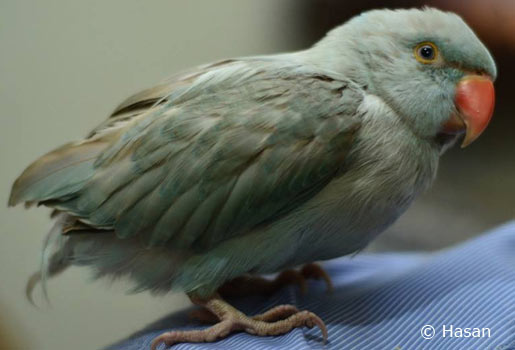Dear Hasan,
Thank you for the questions. Firstly, let me start by telling you that I love the photos you attached with your questions. I especially liked the one with the baby Indain Ringneck sleeping. It’s a great photo and it shows what most baby creatures do; eat and sleep. Such innocent little guys, eh?
Let’s get to your first question that pertains to your baby ringneck getting a healthy diet from the start.
A ringneck diet should be based mainly on high carbohydrates, some fats, and small portions of protein. Items such a rice, beans, and legumes can be given as a staple. The best rice types to feed are brown and long grained rices. If you have access to brown basmati rice, this is perfect. These slow digesting carbohydrates are perfect as they are high in fiber, are plant based, and help to give the ringneck the proper energy needed throughout the day. In fact, cooked brown rice is perfect as you can add many healthy blended vegetables such as broccoli, kale, spinach, peppers, or even fruit to the mix.
When I feed my Indian Ringnecks, I’ll make a base diet of basmati rice, mixed with kale, dandelion leaves, sweet potatoes, yams, dates, and different peppers. My parrots enjoy them and the diet is naturally high in Vitamin A. As a result, my parrots feather out beautifully. Archimedes and Devri are perfect testaments of being fed healthy. They have vibrant colors, glossy feathers, strong feathers, and most importantly they are healthy. Did you know that for the last eleven years Archimedes has never been sick! He is one healthy bird and I strongly believe his diet will keep him well into his twenties.
As mentioned above, healthy fats need to be given in moderation. The amount of fat your bird receives should make up no more than roughly 10 perfect of his diet. A teaspoon of seeds a day should be fine. The best fats are those found in walnuts, flax seeds, or almonds. Other sources can be organic palm oil or coconut oil.
If you do select a red palm oil, just be sure it’s through a reputable supplier that does not damage the environment. Look for sustainable palm oil brands.
I find that nuts are perfect treats for training while fruits and vegetables can be given in an unlimited quantity.
If you have access to pellets they too can be given as a stable. Look for an organic brand.


